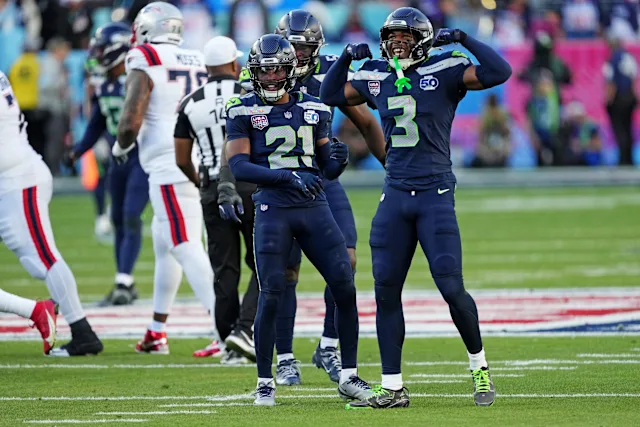In today’s competitive sports landscape, it’s no longer enough for athletes to rely solely on their natural talent or rigorous training. Sports nutrition has emerged as a crucial factor that can make or break an athlete’s performance. From fueling workouts to aiding recovery, the right nutrition plan is instrumental in shaping the careers of top athletes. This blog explores the fundamental impact of sports nutrition on athletic success and how it can be tailored to meet individual needs.
The Science Behind Sports Nutrition
Sports nutrition is grounded in science, integrating knowledge from various fields such as biology, chemistry, and physiology. Understanding how nutrients affect the body is crucial for athletes who aim to optimize their performance. For instance, carbohydrates are a primary energy source, fueling workouts and enhancing endurance. When athletes consume the right amount of carbs, they can maintain high energy levels and avoid fatigue during critical moments in competition.
Proteins also play a vital role in muscle repair and growth. After intense training sessions, body tissues can sustain damage, and consuming adequate protein helps repair and rebuild these tissues. Furthermore, the timing of protein ingestion can significantly influence muscle recovery and growth, hence athletes often monitor their intake closely. Overall, a science-backed approach to nutrition is essential for athletes striving for peak performance.
Moreover, vitamins and minerals are fundamental components of sports nutrition, often overlooked in favor of macronutrients. These micronutrients support numerous bodily functions, including immune system performance and energy metabolism. Deficiencies can lead to decreased performance and increased risk of injury, showing that a comprehensive understanding of nutrition is crucial for athletes.
Key Nutrients Every Athlete Needs
Athletes must pay particular attention to their intake of macronutrients, which includes carbohydrates, proteins, and fats. Carbohydrates act as the body’s primary fuel source, powering both anaerobic and aerobic activities. Combining complex carbohydrates like oats, whole grains, and vegetables can provide athletes with sustained energy, while simple carbohydrates like fruits can offer quick energy boosts in pivotal moments.
Proteins are not just for bodybuilders; they are equally vital for athletes of all disciplines. They not only aid in muscle repair but also help to maintain a positive nitrogen balance, essential for muscle growth. Sources of quality protein, including chicken, fish, beans, and legumes, should be integral to an athlete’s diet. Additionally, incorporating healthy fats from avocados, nuts, and olive oil can provide essential fatty acids that are key for overall health and to support long-duration activities.
In addition to macronutrients, hydration cannot be overlooked. Water constitutes a significant part of our bodies and is essential for metabolic processes, temperature regulation, and joint lubrication. Athletes should develop a hydration strategy that includes both water and electrolyte-rich drinks, particularly during long training sessions or competitions.
How Nutrition Affects Performance and Recovery
Nutrition directly impacts athletic performance, functioning as a key player in both physical efficiency and mental clarity. For example, an athlete who is well-fueled with the right balance of nutrients can execute skills more effectively, stay focused during critical game moments, and recover from exertion quicker. The correlation between optimal nutrition and peak performance underlines the necessity for athletes to be educated about their dietary intake.
Recovery is another critical aspect influenced by nutrition. After rigorous training or competition, athletes must replenish lost nutrients to repair muscles and recover effectively. This includes not only consuming carbohydrates and proteins but also ensuring adequate intake of antioxidants and anti-inflammatory foods to mitigate exercise-induced oxidative stress. Consuming tart cherry juice or green leafy vegetables rich in vitamins can contribute to quicker recovery times.
Mindful eating before and after workouts can make a profound difference in performance outcomes. Athletes are encouraged to eat a balanced meal rich in carbs and proteins approximately two to three hours before exercising. Post-workout, a combination of protein and carbs should be consumed promptly to maximize recovery and muscle synthesis. This thoughtful approach to eating can elevate an athlete’s training efficiency over time.
Customizing Nutrition Plans for Individual Goals
Every athlete has unique goals, and nutrition plans should reflect these individual aspirations. Whether an athlete aims to increase strength, improve endurance, or enhance overall performance, their dietary needs will vary. Thus, personalizing nutrition plans becomes crucial to achieving these varied goals. For instance, endurance athletes may require a higher carbohydrate intake, while strength athletes may focus more on protein to support muscle growth.
Engaging with a sports nutritionist can provide valuable insights into personalizing dietary plans. These experts can design tailored regimens, incorporating specific foods and meal timings that align strategically with athletes’ training schedules. Monitoring progress and adjusting plans as necessary ensures that dietary needs are met consistently, thus optimizing performance.
Flexibility is key; athletes should also learn to listen to their bodies. While a solid nutrition plan is essential, understanding how the body responds to specific foods and timing can inform better choices. This adaptability enables athletes to make real-time adjustments to their nutrition strategies, enhancing results and health.
The Role of Hydration in Athletic Success
Hydration is a fundamental pillar of sports nutrition, often underestimated in its role in athletic success. Dehydration can lead to decreased performance, reduced concentration, and even serious health concerns. Athletes are encouraged to establish a hydration routine that includes drinking water consistently throughout the day and monitoring fluid loss during workouts to ensure optimal performance.
Moreover, different sports may have varying hydration needs. For instance, endurance athletes participating in long-distance events need to replace both fluids and electrolytes lost through sweat. Sports drinks containing electrolytes play a significant role in restoring balance, especially in warmer climates or during extended exertion.
Recognizing individual differences in hydration needs is crucial. Factors like body weight, sweat rates, and environmental conditions can greatly influence how much and what an athlete needs to drink. As such, personalizing hydration strategies based on these factors ensures that athletes achieve peak performance and maintain good health.
Common Myths About Sports Nutrition Debunked
The world of sports nutrition is rife with myths that can mislead athletes and negate their hard work. One common misconception is that consuming excessive protein is the best way to build muscle. While protein is indeed crucial in muscle repair, consuming it in excess will not result in additional muscle gain and can lead to unintended health issues. Understanding the recommended protein intake based on activity level and body weight is significantly more effective than following exaggerated claims.
Another myth is that athletes should completely avoid carbohydrates during certain diets. In reality, carbohydrates are vital fuel sources necessary for optimal performance. Instead of eliminating carbs, athletes should focus on the quality and timing of their carbohydrate intake. Choosing whole grains, fruits, and vegetables over refined sugars will deliver sustained energy while supporting overall health.
Lastly, there’s the belief that supplements can replace real food. While some athletes may benefit from targeted supplementation, no pill can replicate the complexity and benefits of whole foods. A diet rich in various nutrients from whole foods, paired with informed supplementation when needed, is the way to go for robust health and performance.
Success Stories: Athletes Who Embrace Nutrition
Examining the journeys of successful athletes illustrates the profound impact of sports nutrition. Consider the case of elite marathon runner, Eliud Kipchoge, who emphasizes a holistic approach to nutrition that fuels his long-distance runs. By adhering to a diet rich in wholesome carbohydrates, vegetables, and lean proteins sourced from his native Kenya, Kipchoge has not only achieved remarkable performance but has also set records in the sport, showcasing the power of tailored nutrition.
Another inspiring example is tennis champion Serena Williams. She openly advocates for a well-rounded diet that includes colorful fruits and vegetables, lean proteins, and healthy fats. Williams believes that maintaining her physical health through proper nutrition is instrumental in supporting her intensive training regimen and enhancing her competitive edge on the court. Her commitment to nutrition not only fuels her athletic prowess but also serves as a role model for aspiring athletes everywhere.
Stories like these emphasize that nutrition isn’t just a part of an athlete’s routine; it’s a cornerstone of their success. By fostering a strong relationship with nutrition, athletes can unlock their potential, enhance their performance, and inspire future generations to prioritize their health and wellbeing.
Final Thoughts on Sports Nutrition’s Impact
In conclusion, sports nutrition plays a pivotal role in enhancing athletic performance and prolonging careers. By understanding the specific nutritional requirements and making informed dietary choices, athletes can optimize their training outcomes and achieve their goals. The journey of an athlete is often challenging, but by leveraging the power of nutrition, they can unlock their full potential and shine in their respective sports.






